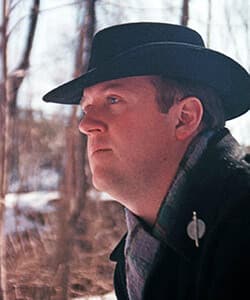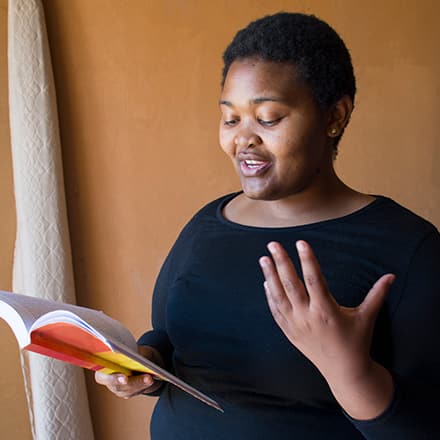8 Short Story Writing Tips from a Dean of Creative Writing

I love stories. It's safe to assume that applies to all fiction writers. Novels allow us to weave complex narratives that evoke authentic worlds and intriguing characters. The benefit of a novel is that it gives a writer the time and space to build a fictional, yet believable, world. It can also be argued that it gives writers too much time and space.
Short stories can also contain rich settings and compelling characters, but they force efficiency upon a writer. While this might seem frightening at first, I find that the confines of a short story often boil the work down to its most important, and compelling, parts.
So, where do you start? There is no magic formula, and each writer follows his or her own unique process, but I hold to eight general guidelines when sitting down to draft a short story.

1. Pick a page count and stick to it (mostly). Word count also works if you prefer that benchmark. Regardless, knowing in advance how much physical space you have to work with helps you determine your sequencing of scenes and overall narrative arc.
2. Decide your theme in advance. It's important to not only know what you're writing about, but why you are writing. What is your story about? Understanding this allows you to map your scenes and character arc to the successful development of a cohesive idea. You'll elevate your story from an entertaining yarn to a substantive experience that makes a reader genuinely think and feel.
3. Every. Word. Counts. Efficiency of language is critical. Details are important. Your characters need to feel real, your world authentic. Every word that goes down on that page should serve a purpose. There isn't room for fluff.
4. Have a rough sense of your narrative arc. Some writers map out everything in advance. Others discover the narrative arc as they write. Either way, you want to have considered key points in your narrative arc and at least have a workable concept of your ending. This will allow you to keep your writing focused and deliberate.
5. Don't take the above point too seriously. Your story map shouldn't be set in stone. Sometimes, in the midst of a scene or character interaction, we're struck by inspiration. Our fingers strike the keyboard in an unanticipated rhythm and we discover an unplanned story beat that is much more satisfying and powerful than anything we could have plotted out. Don't be afraid of those moments. Embrace them and then adjust course accordingly.
Love every moment of the process. Have fun. Full stop.
6. Chart your own course. This is certainly not a magic formula. What I describe above is what works for me. Taking the time to chart your course before diving into the short story allows every word to be written with purpose. On the other hand, writing the story without a plan, and discovering the narrative as you progress, is exciting and challenging. Both approaches have their strengths.
Either way, when you come to a conclusion, I recommend stepping away from the piece for a few days. Let it sit, give yourself some mental space from your creation, and then return with fresh and critical eyes. If you found your theme in the process of writing, or realized that your narrative needs to hit certain beats to reach its complete arc, begin editing and revising the piece down from what might be a cumbersome starting point to a complete, powerful and (most importantly) intentional story.
7. Build a writing community. This is all well and good if everything is flowing along smoothly, but what happens when you hit a storm? The narrative doesn't work. Your ending is hokey. Deus ex machinas encircle you like sharks armed with laser beams. Do you give up and let the story be lost in the tempest?
Absolutely not. Trained writers have resources and tools to combat these moments of darkness and confusion. Your first and best resource is a writing community that is comprised of fellow writers that you trust to offer honest yet encouraging feedback. Take the time to find or build such communities. Having a crew at your back is always worth it.
8. Trust the process. Learning and commanding the craft is absolutely critical. Writing is art, but it is also a process. Learn that process, master it, and trust in it. Doing so doesn't mean that you lock yourself into a certain structure or format that will dictate your stories until the end of time, but instead grants you a compass, sextant, and map that will help you find your way to where you and your story need to be.
No matter what, remember: Have fun. Love this work. Write on what you care about, take the story in directions that excite and scare you, and don't be afraid to take chances. Writing is art, and art can be painful.
Putting our work out there to be read by people we don't know is terrifying, but stories have been a part of human culture for millennia. It's important work that needs to continue, and I hope this advice is helpful.
The question is, will you chart your course and tell your story?
Derrick Craigie serves as the associate dean of faculty for creative writing and literature at Southern New Hampshire University. He's a teacher, writer, father and amateur mountain man. His writing can be found at dwcraigie.com. Follow Craigie on Twitter @dwcraigie.
Explore SNHU's online master's in creative writing and low-residency MFA.
Explore more content like this article

Why is Poetry Important? Celebrating National Poetry Month

Meet Betty White Stamp Artist Dale Stephanos, SNHU Graphic Design Grad

SNHU Spotlight: Dennis Peacock, BA in Graphic Design Grad
About Southern New Hampshire University

SNHU is a nonprofit, accredited university with a mission to make high-quality education more accessible and affordable for everyone.
Founded in 1932, and online since 1995, we’ve helped countless students reach their goals with flexible, career-focused programs. Our 300-acre campus in Manchester, NH is home to over 3,000 students, and we serve over 135,000 students online. Visit our about SNHU page to learn more about our mission, accreditations, leadership team, national recognitions and awards.

